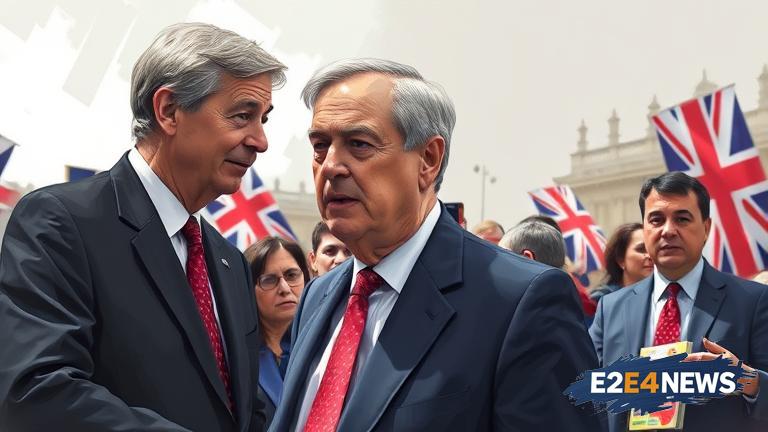The United Kingdom has long been embroiled in a contentious debate over immigration, with various factions advocating for differing approaches to managing the flow of people into the country. Recently, Nigel Farage, a prominent figure in British politics, has weighed in on the discussion, underscoring the importance of implementing more stringent border controls. Farage’s comments come at a time when the UK is grappling with the challenges posed by asylum seekers and the perceived strain on public resources. The immigration debate in the UK is complex, with multiple stakeholders and interest groups vying to shape the narrative and influence policy decisions. On one hand, there are those who argue that immigration is essential for the UK’s economic growth, citing the contributions that migrants make to the workforce and the tax base. On the other hand, there are concerns about the impact of immigration on public services, housing, and community cohesion. Farage’s intervention in the debate highlights the need for a more nuanced approach to immigration, one that balances the economic benefits of migration with the need to maintain public trust and ensure that the system is fair and equitable. The UK’s immigration policy has undergone significant changes in recent years, with the introduction of a points-based system aimed at attracting highly skilled workers while reducing the number of low-skilled migrants. However, the system has faced criticism for being overly complex and bureaucratic, leading to delays and backlogs in processing applications. The issue of asylum seekers has also been a major point of contention, with some arguing that the UK has a moral obligation to provide sanctuary to those fleeing persecution and conflict, while others claim that the system is being abused by economic migrants. Farage’s comments on immigration have sparked a lively debate, with some praising his candor and others criticizing his stance as divisive and xenophobic. The UK’s immigration debate is likely to continue, with the government facing pressure to reform the system and address the concerns of various stakeholders. In recent years, the UK has seen a significant increase in the number of asylum applications, with many coming from countries such as Syria, Afghanistan, and Iraq. The government has responded by introducing new measures aimed at reducing the number of asylum claims, including the use of offshore processing centers. However, these measures have faced criticism from human rights groups, who argue that they are inhumane and violate international law. The immigration debate in the UK is also closely tied to the country’s relationship with the European Union, with the Brexit referendum having significant implications for the free movement of people between the UK and the EU. As the UK navigates its new relationship with the EU, it will be important to find a balance between controlling immigration and maintaining the economic benefits of migration. The government has pledged to introduce a new immigration bill, which will aim to overhaul the current system and introduce new measures to control immigration. However, the bill has faced criticism from opposition parties, who argue that it does not go far enough in addressing the concerns of migrants and asylum seekers. The UK’s immigration debate is a complex and multifaceted issue, with no easy solutions. However, by engaging in a nuanced and informed discussion, it is possible to find a way forward that balances the competing interests and priorities. Ultimately, the UK’s immigration policy will need to be shaped by a combination of economic, social, and humanitarian considerations, taking into account the needs of both migrants and native-born citizens. The debate is likely to continue, with various stakeholders and interest groups vying to shape the narrative and influence policy decisions. As the UK moves forward, it will be important to prioritize a fair, equitable, and humane approach to immigration, one that recognizes the contributions of migrants while also addressing the concerns of the broader community.




